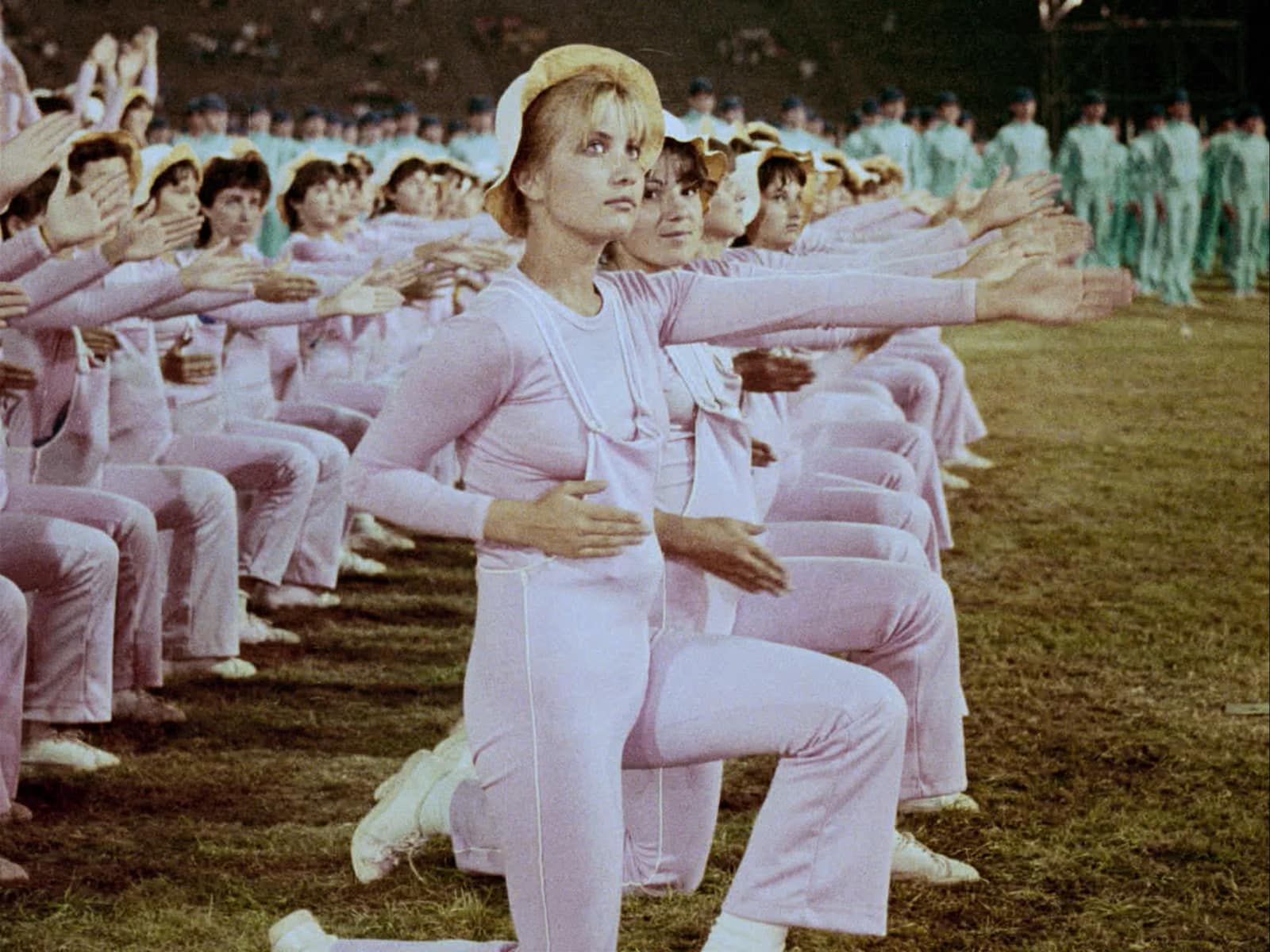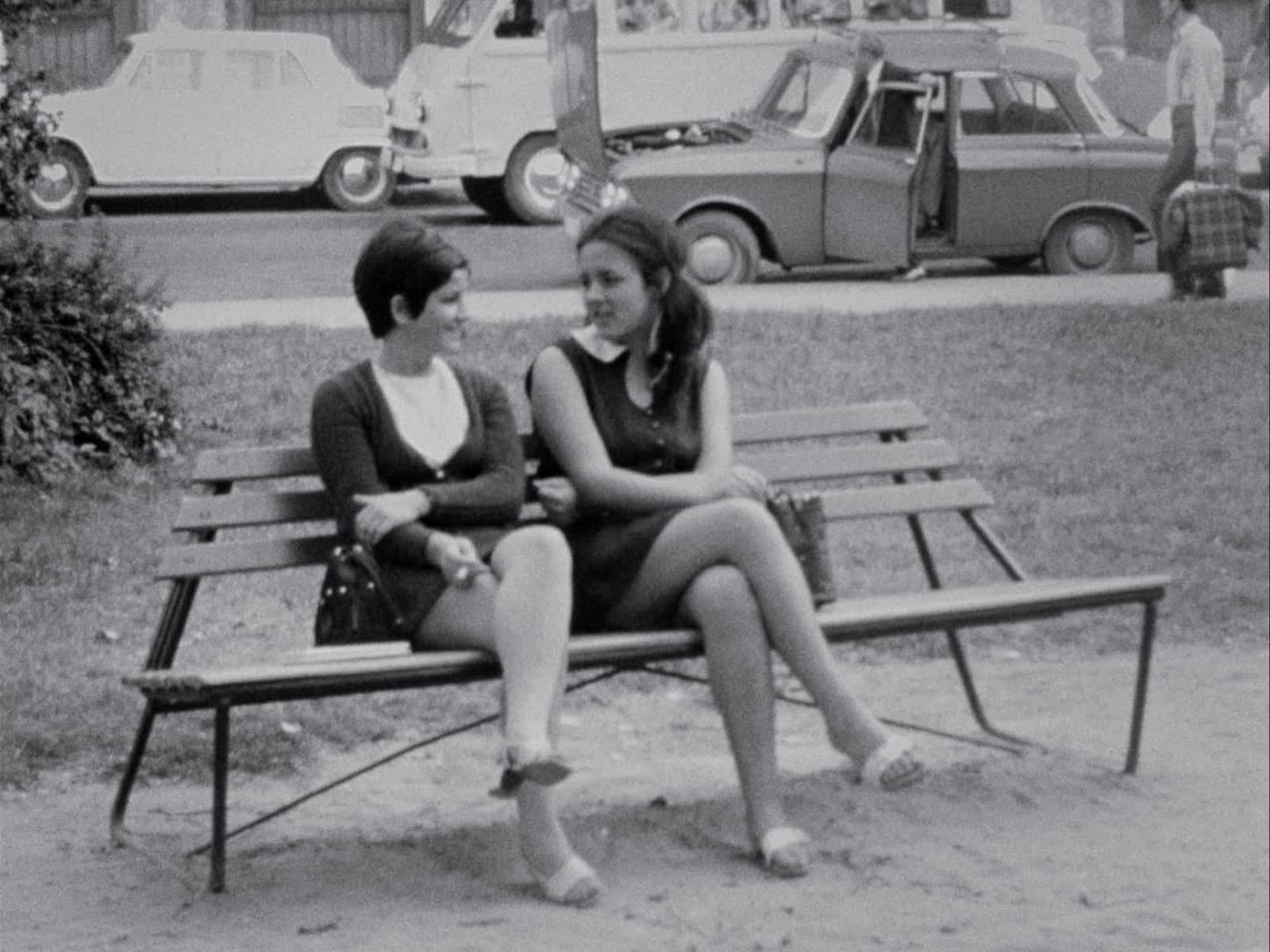




Dir.: Vlad Petri; Documentary with the voices of Ilianka Hanrnut, Victoria Stoiciu; Romania/Qatar/ Iran/Croatia 2023, 67 min.
Two women separated by political revolutions in Iran and Romania share their respective experiences of trauma through a semi-fictional series of letters in this fascinating documentary from Romanian director Vlad Petri.
Petri has plundered the Secret Police archives and pieced together images from TV and film documents to create a semi-fictional correspondence between the two women who studied Medicine together at Bucharest University during the 1970s,
Zarah came originally from Tehran to Bucharest to study medicine and formed a close friendship with fellow student Maria, who grew up in Bucharest. Around the same time, revolution is breaking out in Iran, and Zarah, in her last year of studies, joins her father in the effort to bring down the Shah’s regime, but in her first letters after the return of Ayatollah Khomeini in 1979, express fear rather than joy. It appears that social progress has been perverted by a the clerics who seek instead to repress women, and make the hijab obligatory.

Zarah’s father’s organisation is shut down, and he vanishes without a trace, and she is told to stop looking for him. Over in Romania, Maria is told by her father, to stop writing to Zarah, and start a family. By now, the two women’s correspondence becoming more poetic, Maria urging Zarah “We used to be one, let us be together again”. In Iran, the war with Iraq results in many deaths on both sides, Zarah complaining in her letters to Maria “ I have no voice in the matter of my 15-year old nephew going to war, because I am not a mother. If he is killed, we will be the ‘family of a martyr’”.
After Khomeini’s death in 1989, a new wave of repression breaks out, and Zarah’s flat is ransacked, her books and photo albums strewn all over the place. Maria, her graduation completed, has been transferred to a small village hospital where she feels trapped. A return to Bucharest seems impossible, and Zahar’s letters seem to dwindle. Maria has been finally granted a return to Bucharest, and she has acquiesced to her parent’s wishes and married Marius, a colleague from the hospital.
The Secret police are on her tail, in their long coats they look identical to those in Iran. Maria is active in the uprising against Ceausescu, but her husband stays at home. She continues her correspondence with Zarah, telling her all about the fall of the dictato which will have dire consequences, including widespread poverty from the devaluation of the currency: “We are supposed to be free now. But I know from you, that victories can be confiscated”. A year later, Marius has left the hospital and is selling contraband cigarettes and other goods from Turkey. Maria is desperate: “I wish we could start all over again. We are fading together”.
Vlad Petri has crafted a melancholic essay film about dashed hopes and stolen futures, that underlines the perils of fighting for change. In the end, Zarah’s fate is left open, with Maria fighting to keep their past and their friendship alive. Short, but utterly devastating in its harsh conclusions, Between Revolutions is a testament to lost lives and shattered dreams – with political and personal defeat going hand in hand. AS
BERLINALE 2023